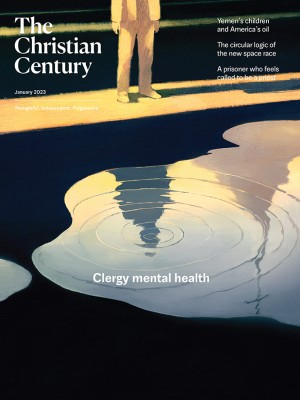The great and strange John Donne
Katherine Rundell’s biography offers something new: she matches the poet’s energy with her own.
Finally a biography of John Donne that captures his eccentricities, his contradictions, his fabulous twists and turns, his trickiness, and—as one critic has put it—his thinking “awry and squint.” Oxford fellow Katherine Rundell does all of this with an engaging spirit not often seen in academic books. Some fine biographies of Donne exist, one of which—John Carey’s John Donne: Life, Mind and Art—awakened Rundell as a teen to the possibilities that literary criticism could be “electric.” But Rundell does something brand-new, matching Donne’s energy with her own.
Rundell calls this book, which recently won the 2022 Baillie Gifford Prize for Non-Fiction, “both a biography of Donne and an act of evangelism.” It offers a deeply sensitive and clear-eyed reading of Donne’s work and life. But it is also a piece of poetry that reveals the complexities of his thought, his impulsiveness, his “flair” which Rundell calls “its own kind of truth: if you want to make your point, make it so vivid and strange that it cuts straight through your interlocutor’s complacent inattention.” She refers to “quicksilver Donne,” to his “magpie mind, obsessed with gathering.” She calls him out, labeling him “both celebrant and assassin, ever shifting between the two.” Super-Infinite is a biography that presents in linear fashion the events of a man’s life, but it is also an expressionistic portrait of a singular individual.
Read our latest issue or browse back issues.
What I appreciate most about Rundell’s approach to Donne’s work is that she offers corrections to the hackneyed interpretations of the split between Donne’s love poetry and his spiritual poetry as representative, respectively, of the young Donne and the more mature Donne, of the rake versus Dr. Donne. Donne himself probably encouraged this interpretation because it provided an easy explanation for the eroticism of some of his love poetry as something he thought better of as he matured into the dean of St. Paul’s Cathedral in London.
But very few of his poems can be dated precisely, and there are indications that he was actually writing some of his poems of faith fairly early. While his erotic verse most probably predates his elopement with Anne More, which cut him off from any possibility of a court position, he also writes love poetry that most likely refers to Anne and would have come much later, after they were married. Anne bore 12 children, only five of whom survived to adulthood—and Anne herself died at age 33 after giving birth to a stillborn child. I have never read a more devastating poem of mourning than his “A Nocturnal upon St. Lucy’s Day,” in which he claims, “I am every dead thing.”
Donne’s prose is as startling as his poetry. The impossibly difficult Ignatius His Conclave—in which Loyola, founder of the Jesuits, falls at Lucifer’s feet in worship—was published anonymously. His Biathanatos, an argument that suicide is not necessarily sinful, was published only after his death. In this surprising book, he argues that Christ’s death was a suicide—that he willed it. This was a dangerous book, and Donne did not want it read—but he didn’t destroy it.
Donne was born into a Catholic family at a time when Catholicism in England was outlawed. His brother Henry died in prison after harboring a priest. Yet Donne became dean of the Anglican St. Paul’s (called by Rundell “a fantastic piñata of a job”), stepping into the role at the bidding of King James I. Contrary to the conclusion of many critics that Donne was forced by penury into the English church because all other options were closed to him, Rundell offers proof that Donne had been campaigning subtly and not so subtly for this position for a long time.
Donne’s preaching was as passionate as his poetry, ever striving for new and astonishing ways to approach theological truth, wanting to stir his congregants to belief and to action. Rundell says that reading his sermons is like mounting a horse which becomes an elephant. The sermons, like the poems, are not easy. They require concentration and rereading, and perhaps for that reason many of his congregants took notes so that they could talk about them later. And they were dramatic events, the most famous of which was his final sermon, “Death’s Duel,” which many have called his own funeral sermon, preached while he was dying.
Donne has occupied a special place in my intellectual, artistic, and religious life—as he has for so many others over the past 400 years. In my early years of teaching, before my own baptism, I was stirred by his poetry to the extent that I read scripture to try to make sense of his Holy Sonnets. I saw that he was trying mightily in those poems to attain a kind of spiritual ecstasy similar to the erotic and mystical highs of his love poetry. I was brought to faith by this astonishing poet and sermonizer, even though it was often difficult to pin him down amid his contradictions—or maybe because of his contradictions, which appealed to my growing understanding of religious paradox. I wrote my dissertation on Donne, heeding, sometimes foolishly, the advice of my adviser that nothing was too extreme in my interpretation of Donne’s poetry.
Now Donne teaches me again, through the remarkable insights in Rundell’s beautiful biography, that “God employs several translators; some pieces are translated by age, some by sickness, some by war, some by justice; but God’s hand is in every translation, and his hand shall bind up all our scattered leaves again, for that library where every book shall lie open to one another.”






